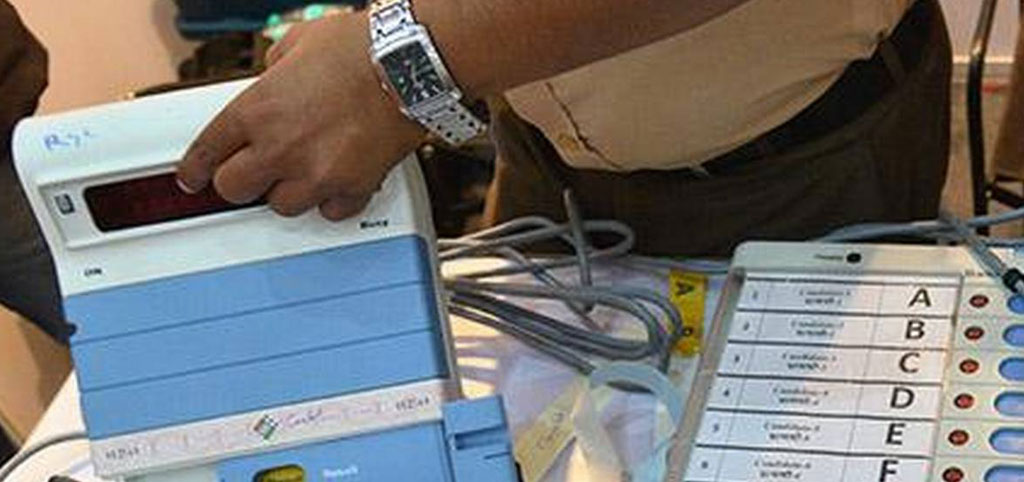GENERAL ELECTION 2019
AND
FEW FACTS ON ELECTION COMMISSION OF INDIA
The Indian General Election of 2019 is scheduled to be held in 7 phases from 11.04.2019 to 19.05.2019 to constitute the 17th Lok Sabha. The counting of votes will be conducted on 23.05.2019 and on the same day the results will be declared.
The Elections for Legislative Assembly will be held in the states of Andhra Pradesh, Arunachal Pradesh, Odisha and Sikkim simultaneously with the general elections.
Nearly 90 crores voters will be eligible to vote for 543 Lok Sabha Constituencies across the country. With the announcement of dates, the moral code of conduct comes into force immediately.
Election Schedule :
The election is scheduled to be held in 7 phases. The date of counting is 23 May. In Bihar, Uttar Pradesh and West Bengal election will be held in maximum 7 phases.
| Phase | Date | Lok Sabha constituencies | Number of States/UTs | States/UTs |
| 1 | 11 April | 91 | 20 | Andhra Pradesh, Arunachal Pradesh, Assam, Bihar, Chattisgarh, Jammu & Kashmir, Maharashtra, Manipur, Meghalaya, Nagaland, Odisha, Sikkim, Telangana, Tripura, Uttar Pradesh, Uttarakhand, West Bengal, Andaman & Nicobar, Lakshadweep |
| 2 | 18 April | 97 | 13 | Assam, Bihar, Chattisgarh, Jammu & Kashmir, Karnataka, Maharashtra, Manipur, Odisha, Tamil Nadu, Tripura, Uttar Pradesh, West Bengal, Puducherry |
| 3 | 23 April | 115 | 14 | Assam, Bihar, Chattisgarh, Gujarat, Goa, Jammu & Kashmir, Karnataka, Kerala, Maharashtra, Odisha, Uttar Pradesh, West Bengal, Dadra & NH, Daman & Diu |
| 4 | 29 April | 71 | 9 | Bihar, Jammu & Kashmir, Jharkhand, Madhya Pradesh, Maharashtra, Odisha, Rajasthan, Uttar Pradesh, West Bengal |
| 5 | 6 May | 51 | 7 | Bihar, Jammu & Kashmir, Jharkhand, Madhya Pradesh, Rajasthan, Uttar Pradesh, West Bengal |
| 6 | 12 May | 59 | 7 | Bihar, Haryana, Jharkhand, Madhya Pradesh, Uttar Pradesh, West Bengal, Delhi |
| 7 | 19 May | 59 | 8 | Bihar, Himachal, Jharkhand, Madhya Pradesh, Punjab, West Bengal, Chandigarh, Uttar Pradesh |
Source : Wikipedia.
Election Commission of India – Few Facts :
- The Election Commission of India is an Autonomous Constitutional Authority responsible for administering election process in India.
- Formation : Election Commission of India is formed on 25.01.1950 (later celebrated as National Voters Day).
- Head Quarter : Nirvachan Sadan, Ashoka road, New Delhi.
- Employees : Around 300
- Commission : Sunil Arora, IAS, Chief Election Commissioner of India
Ashok Lavasa, IAS, Election Commissioner of India
Sunil Chandra, IRS (IT), Election Commissioner of India.
- The Election Commission of India administers elections to the Lok Sabha, Rajya Sabha, Legislative Assemblies and Legislative Councils in India.
- The Election Commission of India administers the election to the offices of the President and Vice-President in the country.
- The Election of India operates under the authority of constitution per Article 324. “Part XV of the constitution of India – Elections – Article 324” and subsequently enacted Representation of people Act, 1951. – An Act to provide for the conduct of elections of the Houses of Parliament and to the House or Houses of the Legislature of each State, the qualifications and disqualifications for membership for those Houses, the corrupt practices and other offences at or in connection with such elections and the decision of doubts and disputes arising out of or in connection with such elections.
- The Commission has the powers under the constitution to act in an appropriate manner when the enacted laws make insufficient provisions to deal with a given situation in the conduct of an election.
- Election Commission is amongst the few institutions which function with both autonomy and freedom, along with the country’s Higher Judiciary, the Union Public Service Commission and the Comptroller & Auditor General of India.
- The Commission is served by its secretariat located in New Delhi. The Election Commissioners are assisted by Deputy Election Commissioners, who are generally IAS officers. They are further assisted by Directors General, Principal Secretaries, and Secretaries and under Secretaries.
- At the state level Election Commission is assisted by the Chief Electoral Officer of the State, who is an IAS officer of Principal Secretary Rank.
- At the District and Constituency levels, the District Magistrates (in the capacity as District Election Officers), Electoral Registration Officers and Returning Officers perform election work.
The above facts are taken from Wikipedia and other sources for general awareness about election process in India. India is considered to be the biggest democracy. We all should know something about our Election Commission of India.

